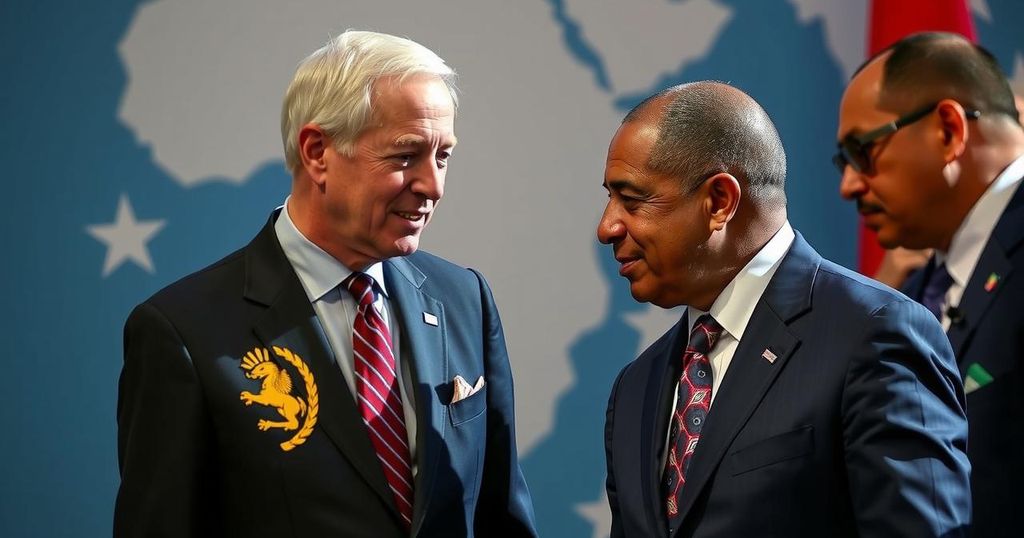Politics
AFRICA, AIR FORCE ONE, AP, ASSOCIATED PRESS, DEVELOPMENT, ECONOMIC DEVELOPMENT, EGYPT, GERALD IMRAY, INTERNATIONAL RELATIONS, JOAO LOURENCO, JOE BIDEN, KAMAL, LOBITO CORRIDOR, NATIONAL SLAVERY MUSEUM, SAHARAN AFRICA, TRADE RELATIONS, U. S, ULISSES CORREIA E SILVA, UNITED NATIONS
Omar El-Sharif
Biden’s Historic Visit to Angola: Strengthening U.S. Ties in Sub-Saharan Africa
President Joe Biden arrived in Angola for a three-day visit aimed at countering Chinese influence through the Lobito Corridor railway project, which is significant due to the critical minerals in the region. The visit includes meetings with Angolan leaders and reflects a commitment to increasing U.S. interests in sub-Saharan Africa. The outcome of the project depends on the incoming administration following the election of Donald Trump, amid concerns over ongoing human rights issues in Angola.
President Joe Biden commenced his inaugural visit to sub-Saharan Africa, landing in Angola, where he aims to counter Chinese influence through support for the Lobito Corridor railway project. This redevelopment initiative, spanning Zambia, Congo, and Angola, is strategically significant due to the region’s abundant critical minerals essential for electric vehicles and clean technologies. With thousands welcoming him in Luanda, Biden’s itinerary includes meetings with Angolan leaders, a visit to the National Slavery Museum, and an inspection of the Lobito port project. This visit follows previous engagements, such as his brief meeting in Cape Verde, underscoring an evolving diplomatic presence in Africa that seeks to reassert U.S. influence amid growing Chinese investment in critical mineral sectors. Despite challenges, including a shift in U.S. administration that might impact ongoing projects, there is optimism about sustaining support for the Lobito Corridor as it represents a pivotal initiative within a broader strategy to challenge China’s dominance in African infrastructure.
Biden’s visit to Angola marks a significant moment in U.S.-African relations, particularly as it reflects a broader strategic competition between the U.S. and China over critical minerals vital for technological advancements. The Lobito Corridor project aims not only to enhance transport infrastructure but also to solidify U.S. interests in a region where China has historically held sway. The investment in this railway exemplifies a shift in U.S. policy towards building long-term partnerships in Africa, following decades where such engagements often appeared peripheral to American foreign policy. Furthermore, Biden’s advancing relationship with Angola represents a significant turnaround from historical tensions during the Cold War period.
In conclusion, President Biden’s landmark visit to Angola is pivotal for reinforcing U.S. presence and influence in sub-Saharan Africa in light of intensifying competition from China in vital sectors. The Lobito Corridor railway redevelopment serves as a keystone project, reflecting a broader strategic push to enhance infrastructure and economic ties. However, the enduring nature of these initiatives may be contingent upon the next U.S. administration’s priorities. As Biden concludes his presidency, the long-term success of these engagements will hinge on sustained bipartisan support for Africa amid shifting global dynamics.
Original Source: www.mercurynews.com








Post Comment